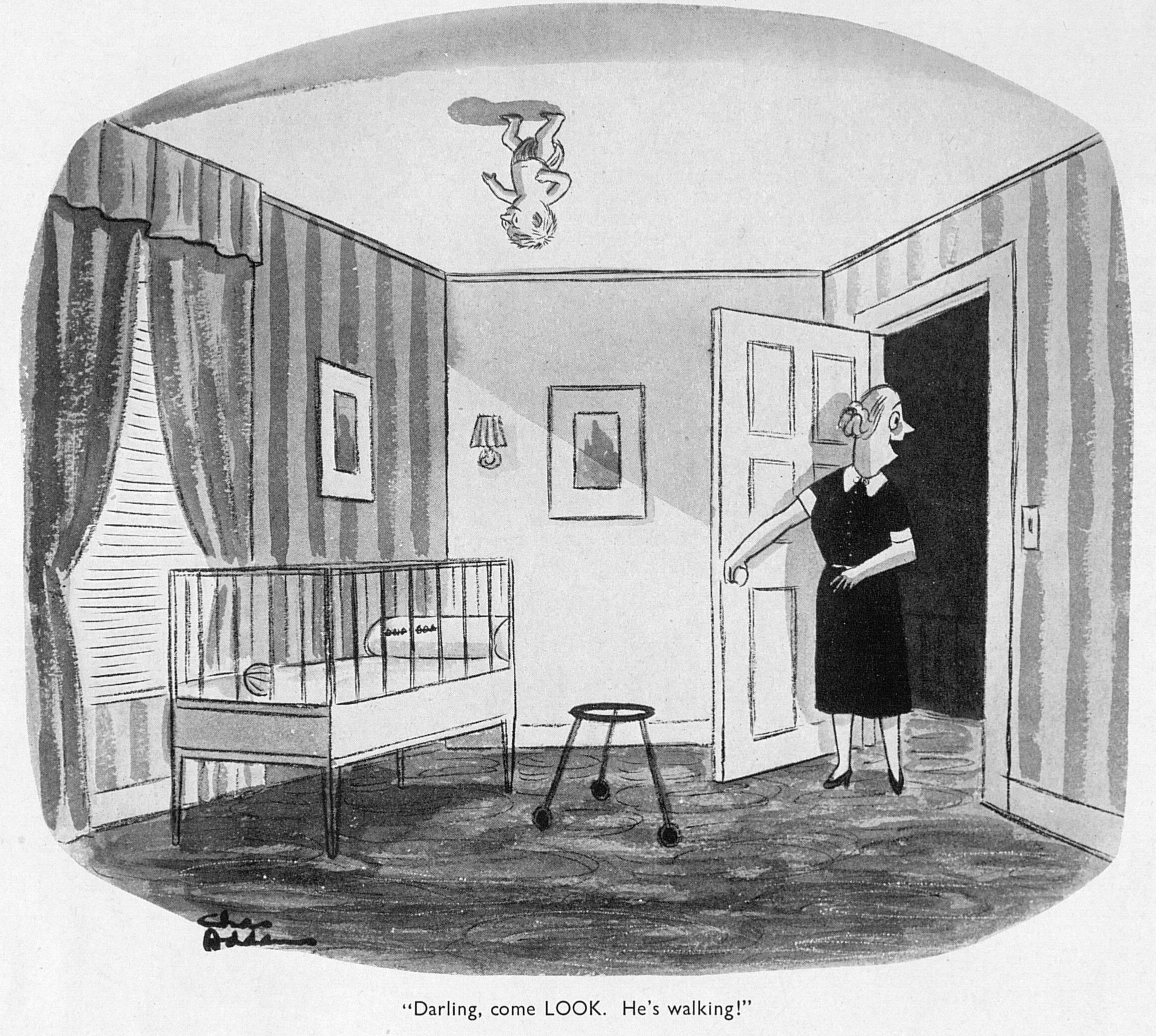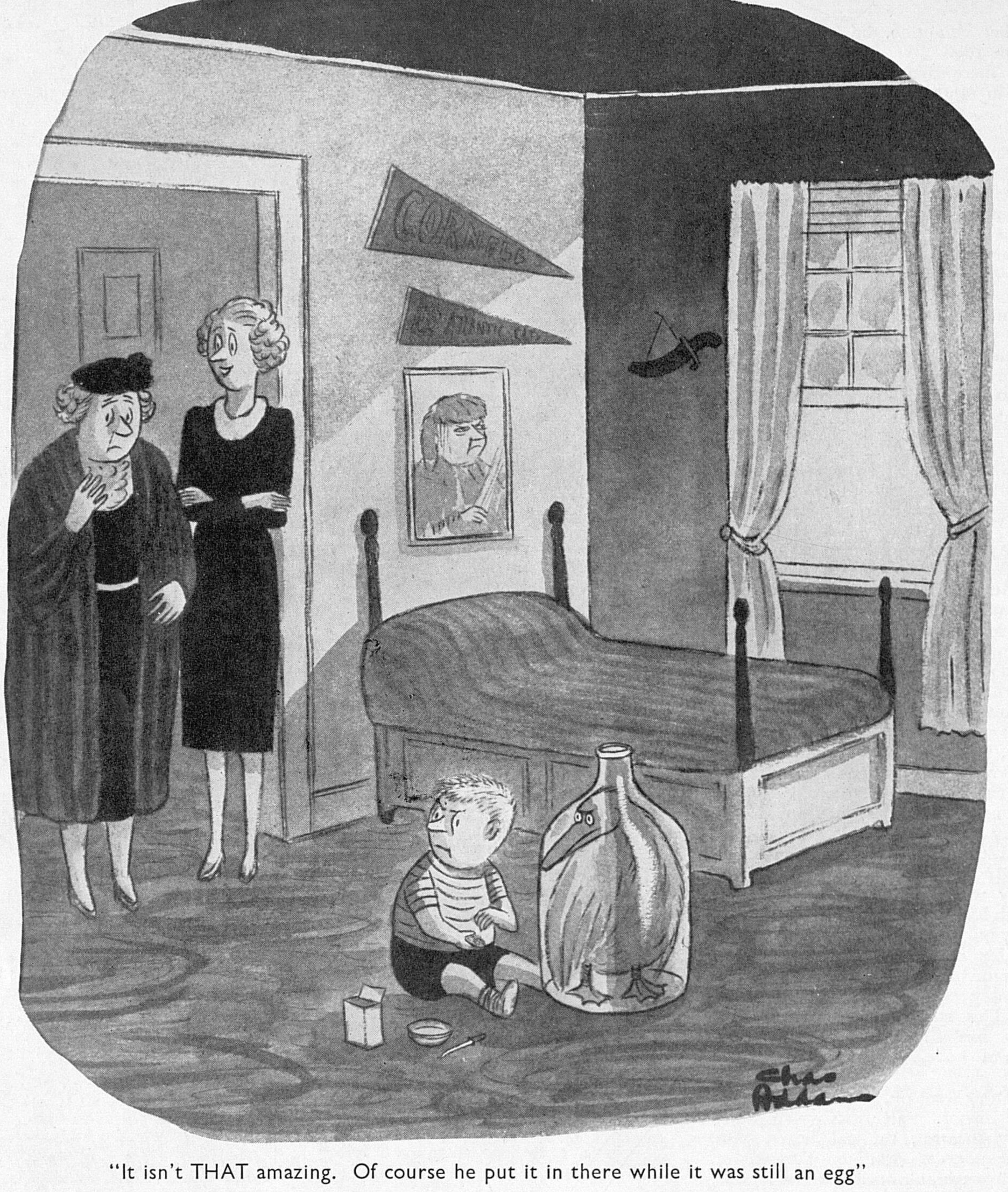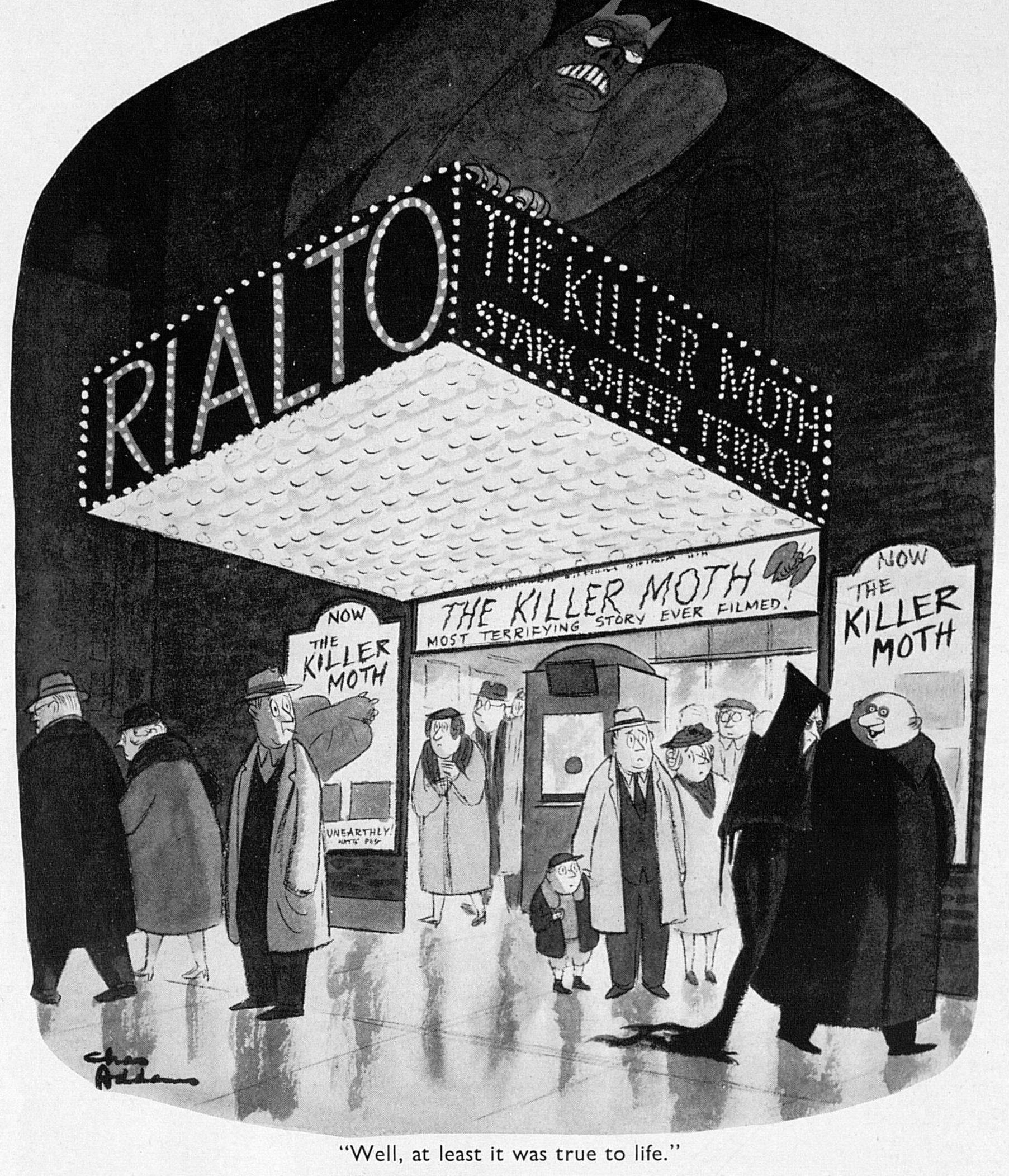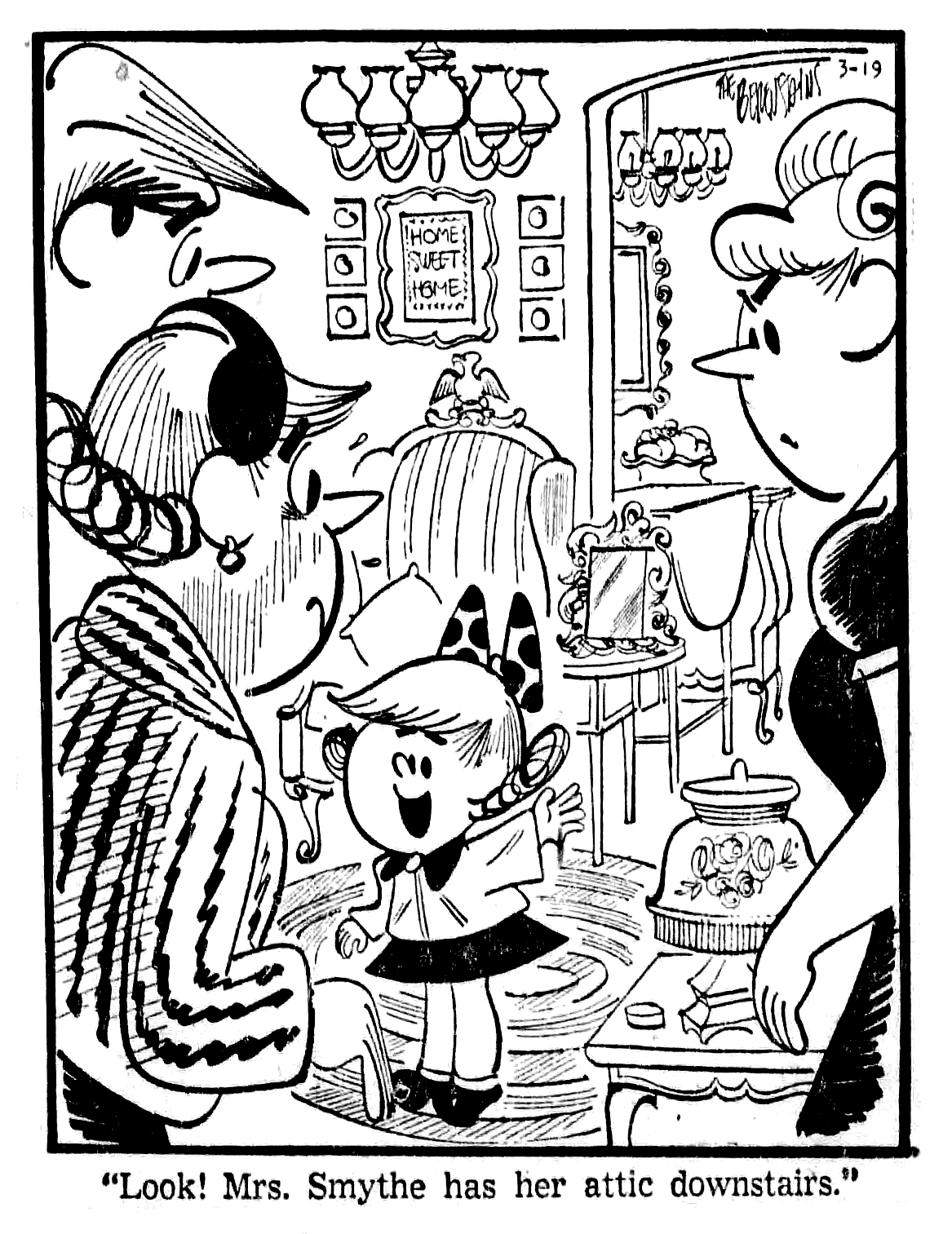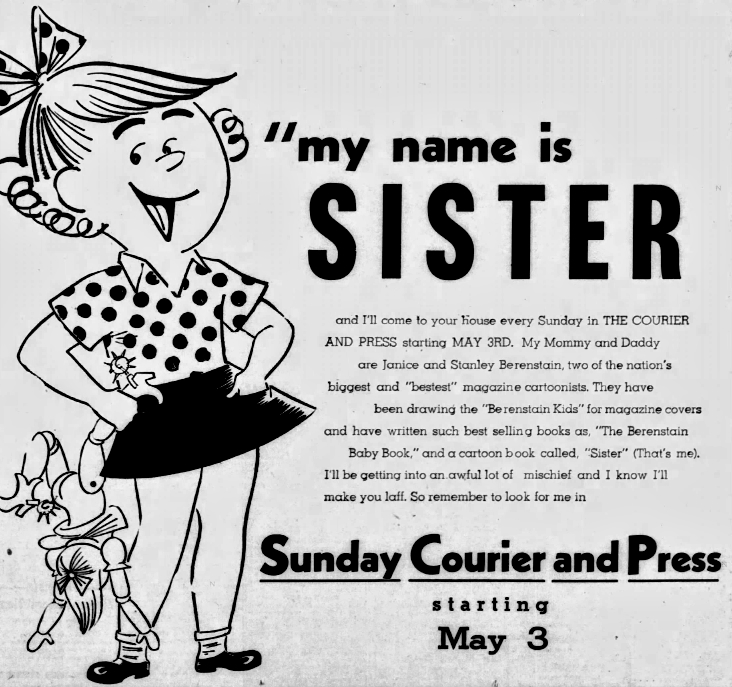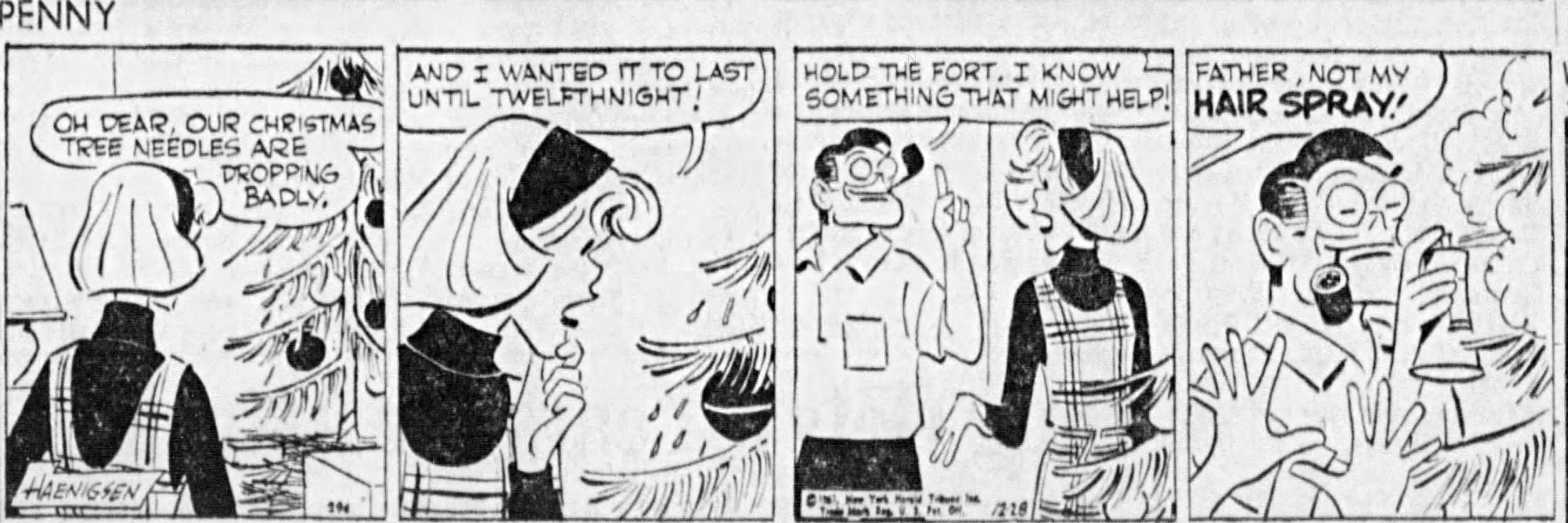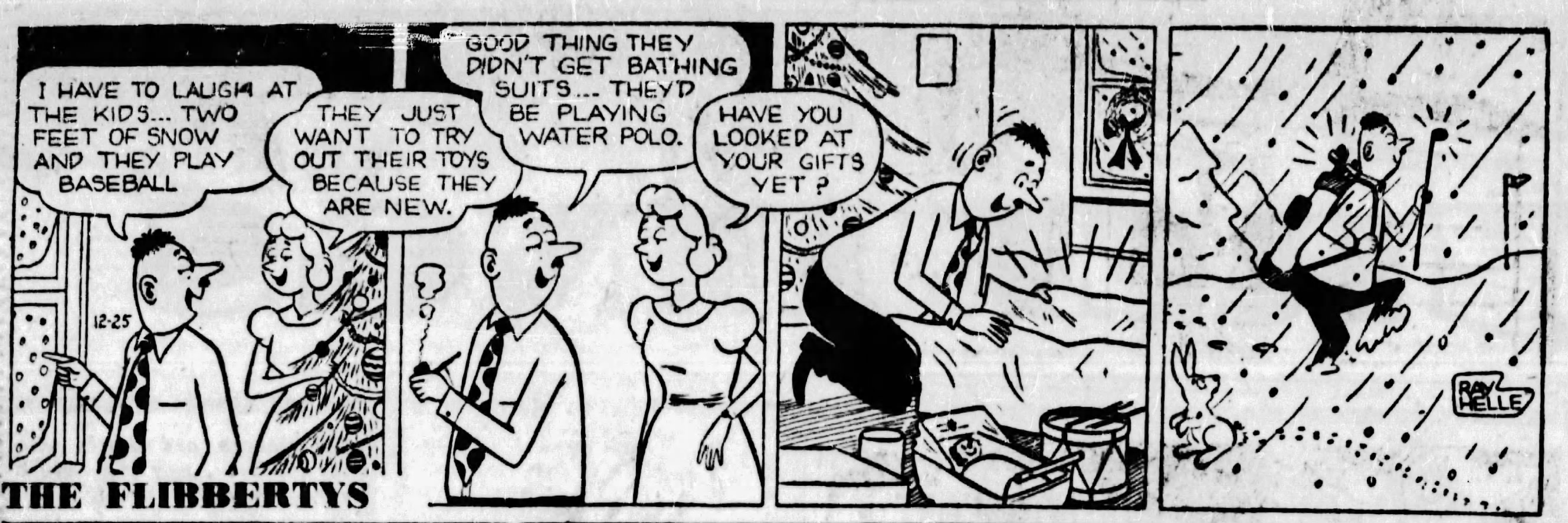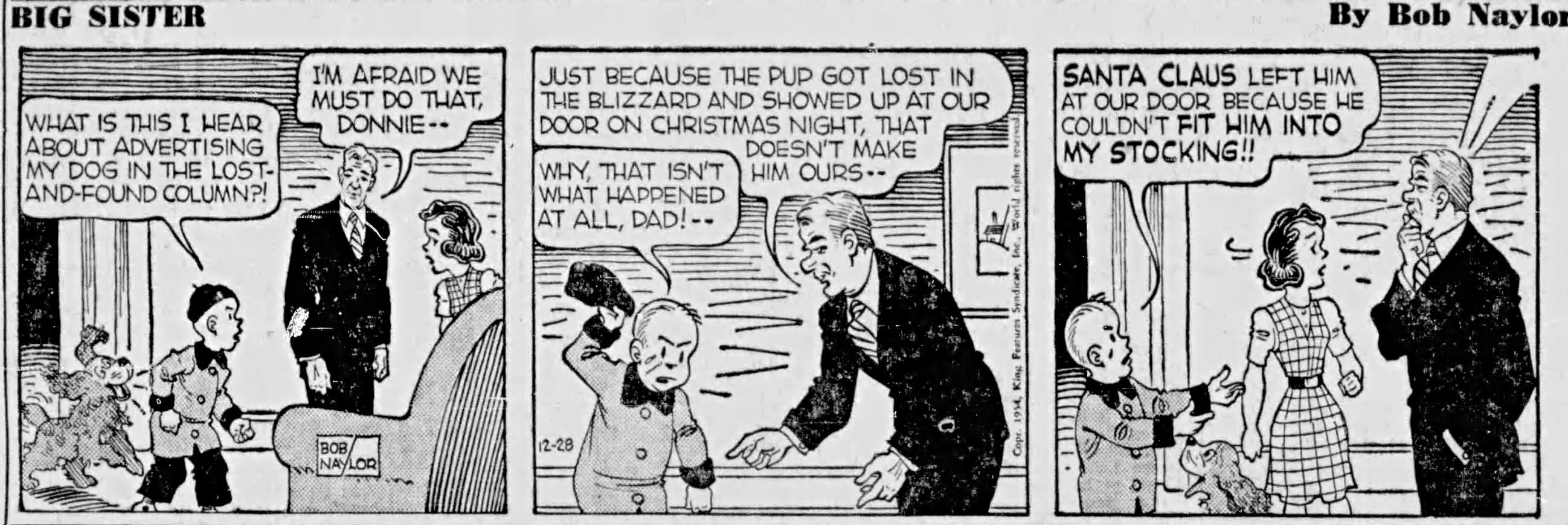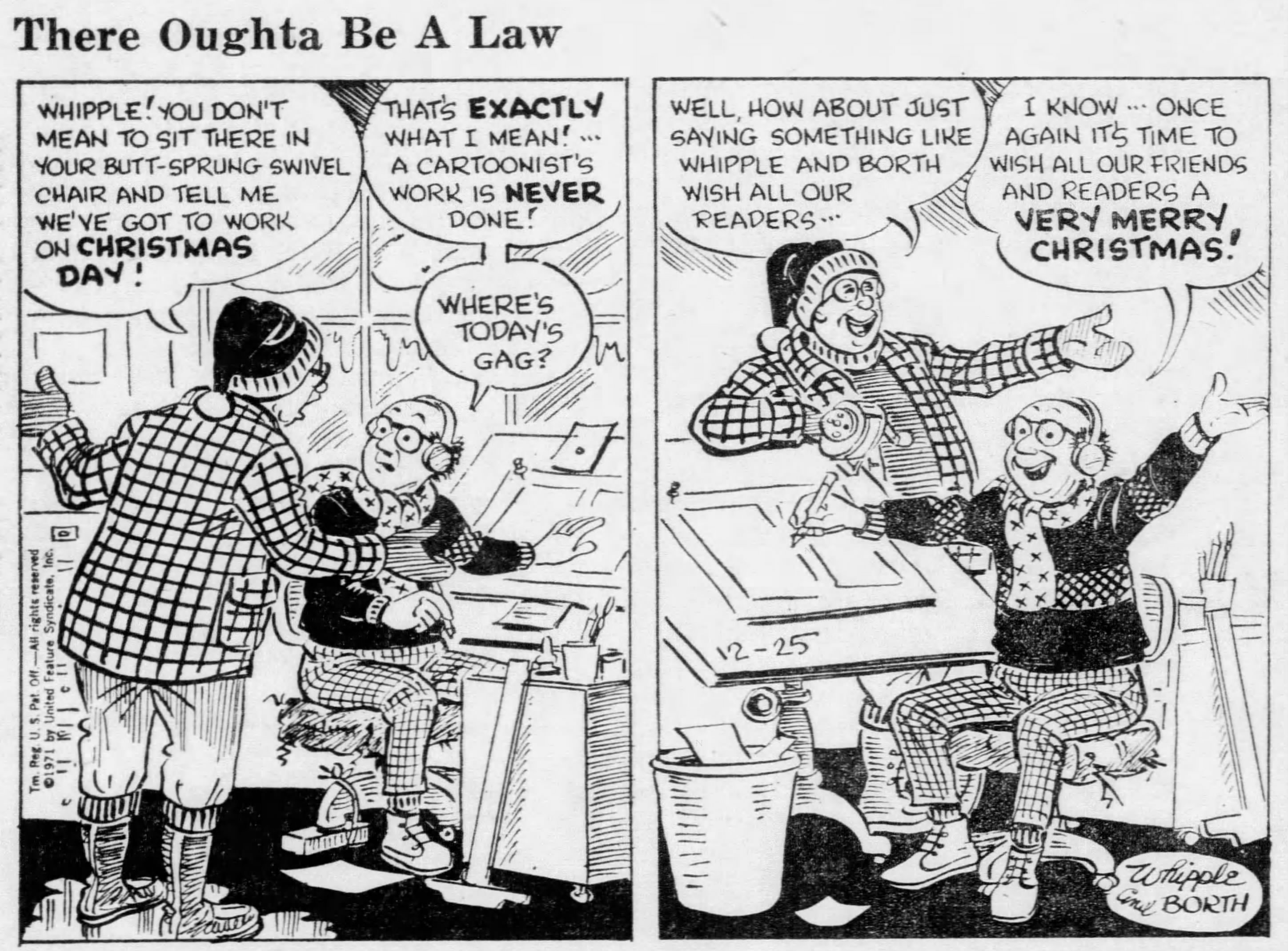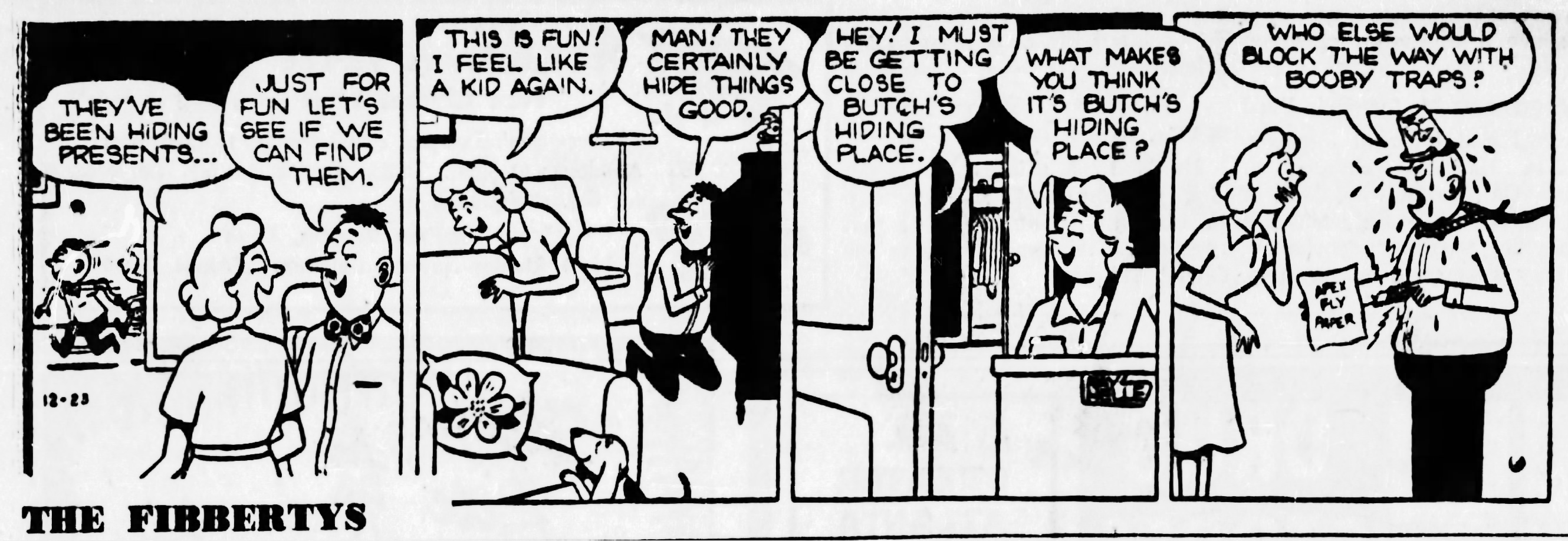Charles Addams is best known as the creator of The Addams Family, a group of strange, monster movie adjacent characters who first appeared as cartoons in The New Yorker magazine.
The magazine first began printing cartoons by Addams in 1932, and he joined the cartooning staff of the magazine in 1935. Certain recurring characters who would later be associated with The Addams Family began appearing in his cartoons in 1937, but it wouldn't be until the next year that he would collect them together into a recurring feature titled "The Addams Family". In 1964, when the television show based on said characters debuted, they would finally be given names, which were provided by Addams himself.
Since 1964, the Addams Family has appeared in TV shows, animated cartoons, movies, and streaming series, but around the 1950s the main place to see them, or any other Charles Addams cartoons, was either in The New Yorker, certain other magazines like TV Guide or Colliers, or in books collecting his work. If you looked for it in the newspaper you would be very disappointed. That was, until 1955 when the McClure Syndicate began publishing a weekly black and white panel by Charles Addams titled "Out of This World" (which I have mentioned before). There isn't much information available on this, but here's what I could find.
In Allan Holtz's book "American Newspaper Comics," he lists the panel as running only in 1956, though I was able to find it running a bit earlier in December of 1955, and ending in December 1956. I also found it running in the British magazine Tatler for a period of 75 weeks, which means it had to have run in the newspaper for more than a year. It ran weekly, on Sundays, though it was printed only in black and white, much like Addams New Yorker cartoons.
While I can't say for certain, it stands to reason that these were rejected New Yorker cartoons that Addams still particularly liked, so he wanted to see them published somewhere. I also imagine that McClure syndicate figured Addams was an established enough name that newspapers would buy the panel based on that alone. All of this is speculation, but when looking at the panels themselves, it's hard to distinguish between the ones that were printed in the newspaper and the ones printed in the magazine.
Further, some of the Out of This World panels include characters that look very similar to Addams Family characters, such as Pugsley and Uncle Fester.
This brings me to another interesting point: In researching this, I came across the Charles and Tee Addams Foundation, who are "dedicated to advancing the artistic achievement of American cartoonist, Charles Samuel Addams," from a comment left on a blog post by one of its members, H. Kevin Maserocchi. He states that he is aware of 65 of these cartoons which were published in newspapers, though somehow it also ran in the Tatler magazine for 75 weeks. Further, many the originals are owned by the foundation and are displayed at exhibitions. This is interesting, given the lack of information available from the foundation about the syndicated strip. If the foundation is aware that they were printed in newspapers, one would think they would acknowledge that fact somewhere on their website, given the amount of information they do provide on Addams' life and career.
Yet, it is nowhere to be found. The biographical timeline doesn't mention Out of This World, and there's no mention of it in the biographical sketch. The timeline does list the 1957 publication of “Nightcrawlers,” a collection of Addams cartoons, which included some from Out of This World, but it does not mention the strip.
So, Miserocchi's comment implies that, while they are aware of the strips, and they are valued just as highly as the magazine cartoons, they have not displayed, republished, or reprinted them with any recognition of their status as newspaper comics. They are treated the same as the rest of his work. Which brings me back to my earlier statement: it would be hard for a layperson to distinguish these cartoons from his other work, and it seems it's either just as hard for the foundation to do so, or they have just decided not to.
I can't say I'm extremely bothered by this, because I think newspaper comics should be valued as highly as other comic works and art works, but it's just interesting that there is no acknowledgment. It would be nice for there to be some, given how difficult it is to find mentions of the newspaper strip anywhere. The definitive biography of Addams, "Charles Addams: A Cartoonist's Life" by Linda H. Davis, doesn't mention it at all. Even the Wikipedia page only mentions it in passing, with no citation.
All that said, I feel like this lends credence to the idea that they were rejected New Yorker cartoons. If they were originally meant to be in a certain publication, it makes sense to continue to associate them with other cartoons that ran in that publication.
For more information:
Out of This World panels at Ink Spill blog. Of particular note is the comment from H. Kevin Maserocchi
The Addams Family at Don Markstein's Toonopedia
Charles Addams at Don Markstein's Toonopedia
Charles Addams at Lambiek Comiclopedia
Out of This World in Tatler magazine at Attempted Bloggery blog
Charles Addams biographical timeline at the Charles and Tee Addams Foundation
